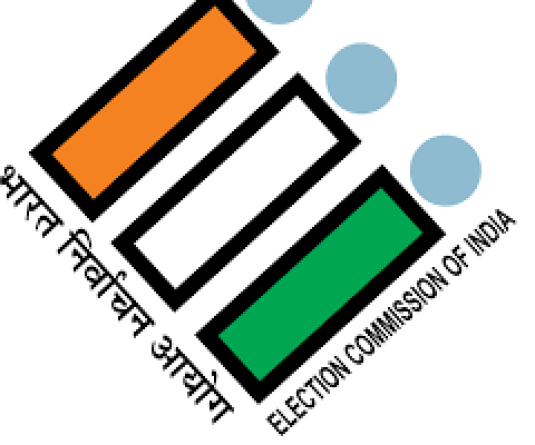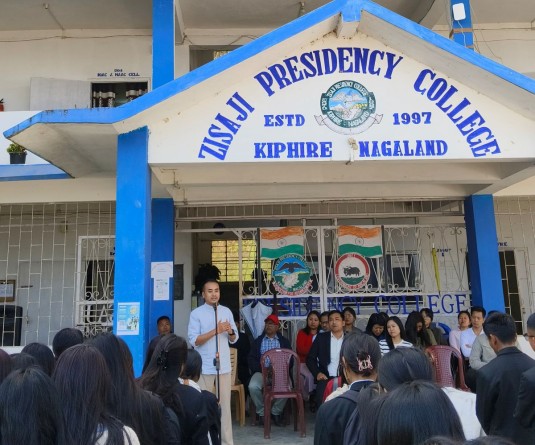NSF officials with Vice Chancellor of Nagaland University.

LUMAMI, FEBRUARY 21 (MExN): Naga Students’ Federation (NSF) has submitted a representation to the Vice Chancellor of Nagaland University, urging the institution to implement an 80% reservation for indigenous Nagas in both teaching and non-teaching positions. The student body also called for recruitment interviews to be conducted in person rather than through virtual platforms.
In the letter addressed to the Vice Chancellor, the NSF stated, “Nagaland University should be a leading institution in promoting local talent and expertise by ensuring at least 80% of the teaching and non-teaching positions are reserved for indigenous Nagas of Nagaland state.” It said the constitutional provisions under Article 371(A), which safeguard the rights of Nagas over their land, resources, and customs.
The NSF highlighted concerns about the frequent transfer requests from non-indigenous staff, stating that “non-indigenous staff members often serve for short durations before seeking transfers or moving elsewhere, leading to frequent disruptions in the academic environment.” According to the representation, this instability affects students' academics, research progress, and the overall administrative efficiency of the university.
In contrast, the NSF argued that hiring more indigenous candidates would contribute to “continuity, accountability, and long-term contributions to the university’s growth.” The letter also noted that employing qualified Naga youth could help address local unemployment while enriching the institution with professionals who have a lasting commitment to the university and its students.
In addition to the reservation demand, the federation raised concerns over the university’s practice of conducting virtual interviews. “While online platforms provide accessibility and convenience, they also pose significant challenges in the fair assessment of candidates,” the representation stated. The NSF argued that virtual interviews carry risks of “unfair evaluation, lack of transparency, and possible malpractice in the selection process.”
Calling for physical, in-person interviews, the federation asserted that “the credibility of the recruitment process is best upheld through physical interviews, where candidates are assessed in person and documents are verified thoroughly.” According to the NSF, this would allow for a more accurate evaluation of candidates’ qualifications, communication skills, and suitability for the roles.





